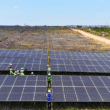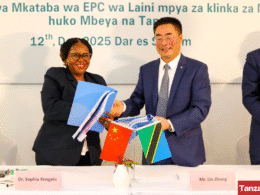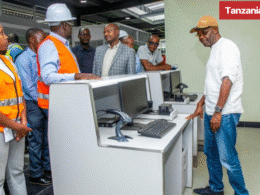According to a recent report by the Daily News, local Tanzania construction companies have witnessed a significant increase in business partnership with the Korean automobile company, Hyundai East Africa Limited, have witnessed a drastic increase in the formulation of business partnerships since the Korean company officially introduced the machines to the Tanzania market several years ago.
According to the company’s head of Administration and Marketing, Azda Amani, who spoke at to the Daily News at the 33rd Dar es Salaam International Trade Fair exhibitions, local contractors are increasingly buying construction equipment from the company.
In addition, Ms. Amani also indicated that in order to continue attracting local companies, her company has started to introduce special payment options in order to to make it possible for the local company’s to purchase the equipment that is necessary for their respective projects.
In fact, since 2007, the company has been selling their equipment with special agreements in which the local company makes an original down payment of 20 percent of the total price and pays the remaining 80 percent with the assistance of a bank loan under the company’s guarantee.
“By so doing we have managed to retain our customers and win more local companies who could not afford to pay cash to buy the equipments,” said Ms. Amani, who went on to explain that prior to this arrangement, her company had been more strict, which resulted in local companies not being able to compete with the larger existing foreign companies in construction sector.
Ms. Amani went on to explain that, since the introduction of the loan package, local companies had begun competing for higher positions in the industry.
In fact, according to Ms. Amani, approximately 25 local companies have been trading with Hyundai in the past two years through the purchase of heavy duty machines for construction projects.
Prior to the current arrangement, that the company had functioned with a package in which its customers were required to pay a 50 percent down payment, followed by a series of post dated checks.
“We abandoned this system, after it proved to be a failure,” explained the company’s Senior Sales Executive, Anthony Nyeupe, “In fact, local companies failed completely to manage, but with this package, they are becoming more exposed and have been inspired.”
Mr. Nyeupe went on to say that his Company is currently anticipating the arrival of the consignments for the ten orders that have recently been received.










